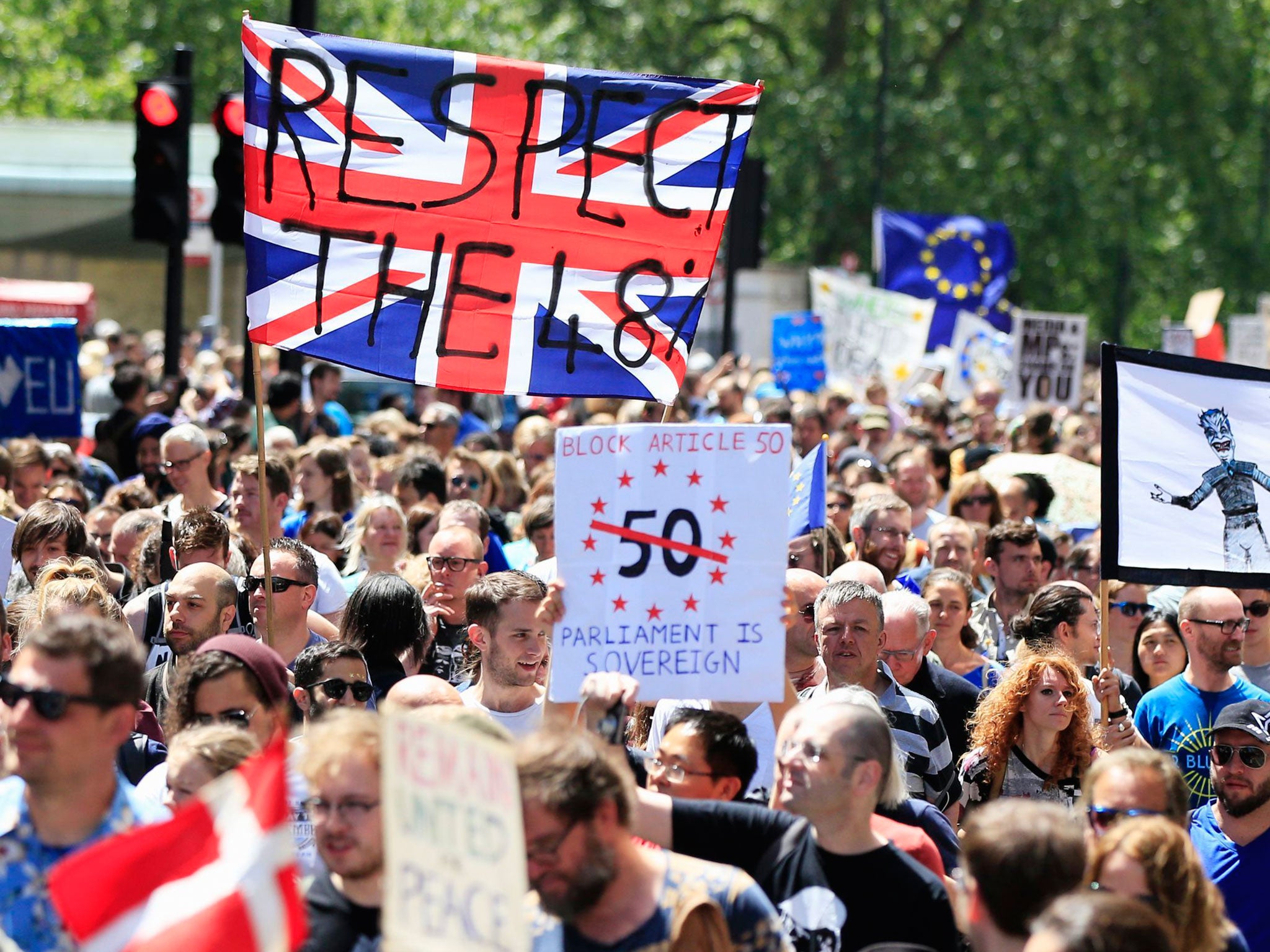Brexit is 'biggest threat' to the future of the NHS, say 100 MPs, MEPs and peers from five parties
Exclusive: Public must decide whether impact of EU withdrawal on health system is 'too high a price to pay', cross-party group warns

More than 100 elected officials from five political parties have issued a stark warning about the impact of Brexit on the NHS, saying leaving the EU is “the biggest threat of all” to the health service.
In a letter seen by The Independent, MPs, MEPs, peers and assembly members from Labour, the Liberal Democrats, the SNP, the Green Party and Plaid Cymru said a hard Brexit would create challenges for the NHS “for decades to come” and could lead to further privatisation.
A slowdown in economic growth, withdrawal from key EU health agencies, a loss of staff and increased difficulty in importing materials used to treat cancer will place the health service under growing strain and put patients at risk, they said.
In the letter, which was signed by supporters of the pro-EU Open Britain campaign, the cross-party group said: “As the winter crisis pressures continue it is increasingly clear that the biggest threat of all to the NHS is a hard Brexit. And the reason for this is clear. Brexit will act as a stress multiplier, exacerbating the many challenges facing the health service for decades to come.”
They said that, despite discredited claims a further £350m per week could be invested in the NHS after Brexit, a similar sum has been lost in lower economic growth since the EU referendum.
“This is already translating into lower tax receipts and will mean less money for the NHS,” they wrote. “Future generations will ask why, as our health service was crying out for more resources, we as a country embarked on a national mission to downgrade our economy.”
They added: “At the same time, Brexit is also deepening the NHS staffing crisis. The prolonged uncertainty around the rights of EU nationals, coupled with the fall in the value of the pound, has led many European doctors and nurses to reconsider their future here.”
Statistics published by the Nursing and Midwifery Council have revealed an 89 per cent fall since the Brexit vote in applications from nurses in EU countries to work in the UK.
A major academic study published late last year found Brexit posed “major risks” to the NHS, including funding cuts and falling staff numbers. Leaving the EU without a trade deal would be “potentially catastrophic”, researchers said.
In the letter, the cross-party group wrote: “If the NHS buckles further under this strain, the pressure for privatisation will steadily grow. As John Major said of prominent Leave campaigners during the referendum, ‘the NHS is about as safe with them as a pet hamster would be with a hungry python.’
Among the signatories are 44 Labour MPs, plus numerous MEPs and assembly members, 15 Liberal Democrat representatives, including leader Sir Vince Cable, seven from the SNP, four from the Green Party and one from Plaid Cymru.
They concluded by saying the public should ask whether the cost of Brexit to the NHS “is too high a price to pay”.
“Brexit is not a panacea to the NHS crisis,” they said. It is no longer even a placebo. Instead of providing answers, it simply creates more problems – calling into question the ease with which we currently import medical isotopes to diagnose and treat cancer and the speed at which new medicines and treatments will be available once we have left the European Medicines Agency.
“This wasn’t on the side of a bus but the public have a right to know. And ultimately, if it looks as though the cost of Brexit is irreparable damage to our health service, people have every right to ask whether that is too high a price to pay.”
The warning comes ahead of a crucial week that will likely shape the UK’s future relationship with Europe. On Monday, Michel Barnier, the EU’s lead negotiator, will visit London for meetings with Theresa May and David Davis, the Brexit Secretary,
On Tuesday, Oliver Robbins, Ms May’s Brexit adviser, will travel to Brussels to begin talks on the next round of negotiations, which are set to begin next month.
And on Wednesday and Thursday the Cabinet’s Brexit sub-committee will hold two crunch meetings to thrash out the Government’s position in relation to the EU single market and customs union.
Join our commenting forum
Join thought-provoking conversations, follow other Independent readers and see their replies
Comments